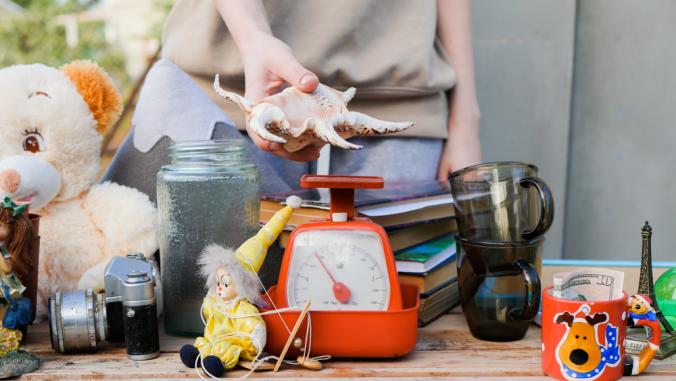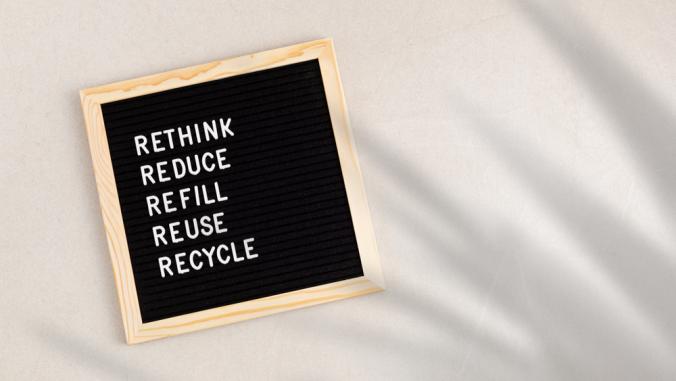Want more great analysis of the circular economy? Sign up for Circularity Weekly, our free email newsletter.
I know, it’s not the most popular of subjects. But on the heels of last week’s GreenBiz 21 conference, the annual gathering of corporate sustainability professionals, I can’t help but address the elephant in the room. (Or as the World Resources Institute appropriately dubbed it, the latest elephant in the boardroom.)
"We need to do a heck of a lot more than change the ways that we create and consume," said Sherri Mitchell, an environmental and Indigenous rights activist, teacher and founding director of the Land Peace Foundation. "We need to actually change our relationship with consumption."
Mitchell’s words, and the keynote panel, "All We Can Save: Why We Must Learn from Indigenous Wisdom" on which she sat, have rattled around in my mind all week between breakouts on the nuts and bolts of the corporate sustainability profession. Consumption often remains unspoken or unacknowledged.
To be fair, we are getting increasingly better at the way we make things. Across industries, companies are beginning to prioritize recycled and renewable materials, powering manufacturing with clean energy, and (sometimes) embracing circular design principles of durability, modularity and reparability. The path forward for better products is relatively clear.
We’re even getting a bit better at the way we enable sustainable consumption and get the most out of what we already have: Repair, remanufacturing and product life extension; resale and recommerce; sharing and rental are quietly gaining momentum.
But making better products and extending their useful lives won’t be enough.
When your entire value system for society is based on notions of commerce and consumption, how do you get away from that?
Mitchell continued, "We have to reevaluate our entire value structure so that consumption is not holding a primary role within the [framework] that we’re operating under. When your entire value system for society is based on notions of commerce and consumption, how do you get away from that? We commodify ourselves in nearly every aspect of our lives. We need to start looking at changing the ways that we apply value."
The roots of overconsumption — culture, values, worldviews, capitalism — are some of the most unpopular and uncomfortable topics of conversation at any company. And for good reason: they threaten the fundamental premise of the sustainable business community and its theory of change (see: "Winners Take All" by Anand Giridharadas).
Frankly, corporate audiences don’t often take seriously value-driven inquiries about consumption, writing them off as aspirational or totally unrealistic.
Mitchell spoke on stage alongside Tara Houska — tribal attorney, land defender, former adviser on Native American affairs to Bernie Sanders and founder of Giniw Collective — who stepped indoors from the Line 3 pipeline resistance camp to participate in the conversation. She had some things to say about how many business leaders typically respond to these calls for reflection by indigenous leaders.
"Native people make up 5 percent of the population globally and hold 80 percent of the biodiversity. I think we know something and have some information to share," Houska said. "We’ve been around for thousands and thousands of years. We’ve learned something in our time here on this planet that we all share. Obviously, those connections and that deep interconnectedness with nature [enabled us to] have 80 percent of the world’s remaining biodiversity."
Despite the virtual format of the event, you could hear a proverbial pin drop.
"So please listen and please do your best to take our words to heart instead of just putting them into some ‘Oh that was inspiring and made me feel good, but back to business.’ This should be the business. The business of life is critically important to life. We care about life and we want life-givers and life to continue on this earth because we owe it to the next generation to come."
So yes, we need to talk about consumption. But we also need to listen, particularly to Indigenous leaders, on addressing the symptoms of a systemic problem and on reframing the definition of business itself.
I invite you to listen to Mitchell and Houska’s entire conversation here.






